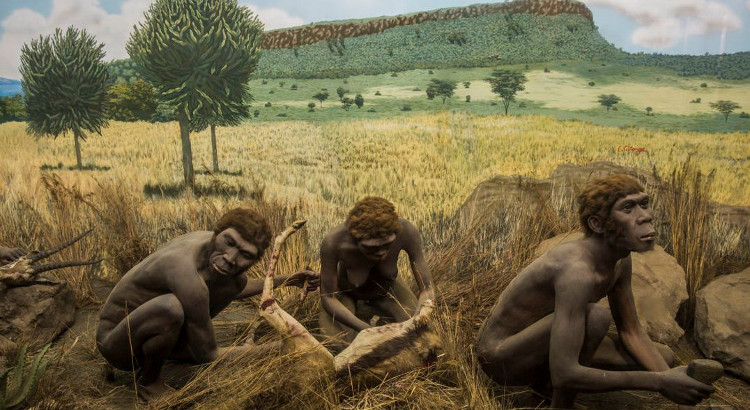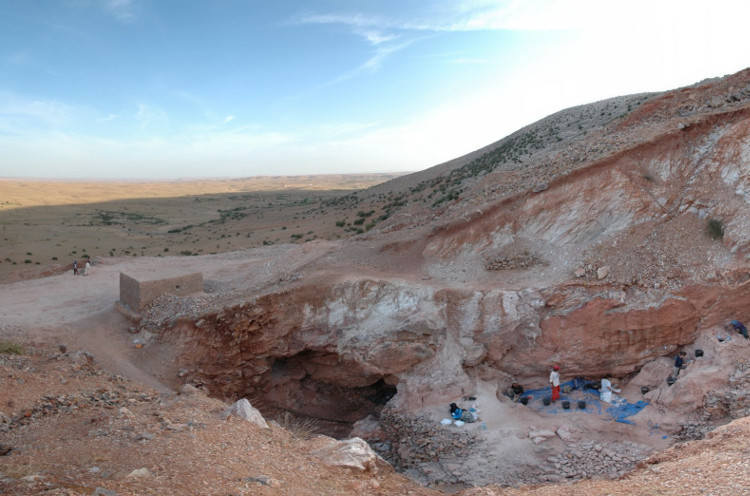Find the most ancient human bones in unexpected places
Pieces of bone along with 300,000-year-old stone tools were found in an unexpected location and could alter the history of humanity.
Hundreds of thousands of years ago, about 100 kilometers west of what is today the city of Marrakesh of Morocco, a group of people living in the cave noticed the lush landscape of Morocco. They decided to stay here, putting a fire to heat. They hunt, sharpen stone tools. And they died in the cave, leaving their bones buried under dust. At that time, there was nothing remarkable about these cave inhabitants.

Sketch of Homo sapiens.
Now identified as Homo sapiens, a monkey that has lived throughout Africa, their death has become particularly important. This cave today is called Jebel Irhoud and the skeleton of the cave inhabitants has just been discovered by an international team of scientists.
These are the fossil remains of the oldest Homo sapiens ever found. Previously, the record belonged to two skeletons in Ethiopia dating to about 160,000 years and 195,000 years.
However, Jebel Irhoud's cave skeletons, along with their stone tools, are the most ancient, surviving 315,000 years.
According to the Atlantic magazine of the United States, where this fossil find is also interesting. Their appearance in North Africa changed the thinking of the origins of humankind from the east of the continent. Mr. Philipp Gunz at Max Planck Institute for Evolutionary Anthropology said: "What people, including myself, once thought there was a cradle of humanity in East Africa about 200,000 years ago and all of you modern people inherit from that part of the people ".

Jebel Irhoud cave.(Photo: Max Planck Insitute).
However, "new findings suggest that Homo sapiens are much older and have spread throughout Africa 300,000 years ago. They actually show that the African story of our species is more complex than what we have. thought '.
This new finding is a 'very important discovery', commented Zeray Alemsege of the University of Chicago. According to him, the Jebel Irhoud caves of Homo sapiens mark an important milestone when the earliest human members can evolve. And they also play a significant role to better understand the patterns of physical and behavioral evolution (between people) on the African continent - confirming the African origin of human ancestors.
- Decoding giant bones in Italy
- The oldest fossil bone human excavated outside Africa
- Interesting facts about bones are not well known
- Human hands evolve earlier than we think
- New tiny human bones were discovered in Palau
- Belgium: Detecting people eating meat together 40,000 years ago
- Fossils discovered 300,000 years old
- The discovery of human finger bone fossils dates back to 1.84 million years
- Human bones are lighter with time
- Mysterious ancient crocodile bones found in ancient desert in Israel
- Connect the bones of the screw made from ... human bones
- The mystery of the broken bones in an ancient English village
 Discovered an ancient centipede fossil 99 million years old
Discovered an ancient centipede fossil 99 million years old Discovered bat-like dinosaurs in China
Discovered bat-like dinosaurs in China Discovered a 200-year-old bronze cannon of the coast
Discovered a 200-year-old bronze cannon of the coast Discover 305 million-year-old spider fossils
Discover 305 million-year-old spider fossils